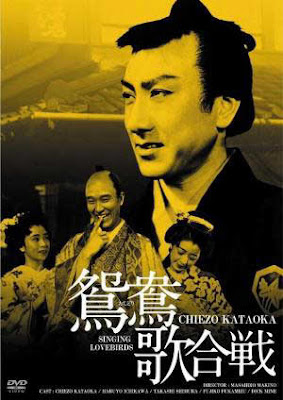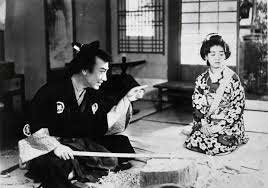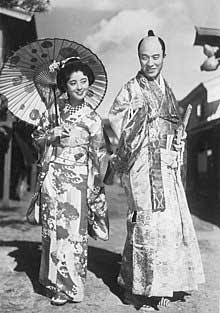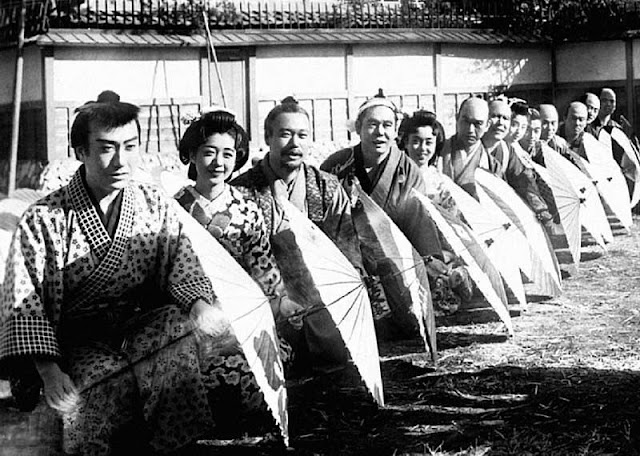Singing Lovebirds

Director: Masahiro
Makino
Year: 1939
Rating: 7.5
This is 69-minutes of delight. Totally charming.
A Japanese musical comedy. From 1939 directed by Masahiro Makino who would
go on to be one of Japan's top directors for decades. The story goes that
Nikkatsu had a hole in its schedule due to the cancelation of a film and
so they asked Makino to direct a film in two weeks. This is what he came
up with - a film that over time has gained quite a fan base and is now considered
a classic. It is so much fun. Kind of a Japanese Gilbert and Sullivan operetta
of misunderstandings, love and a happy ending. And nearly non-stop song and
music. Everybody sings in this and it is the actors doing the vocals. The
songs are melodious mixing traditional sounds and Western beats. The lyrics
are clever and often amusing. In the opening scene Otomi (Tomiko Hattori)
is walking down the village street in feudal Japan with her servant Sankichi.
Behind her come running a group of five suitors who sing of their love and
their qualifications - the basket seller, the rice seller, the grocer, the
coil seller and the liquor seller. To which she sings back "You all have
cheap unlikable faces" and Sankichi adds on more insults in song as well.






